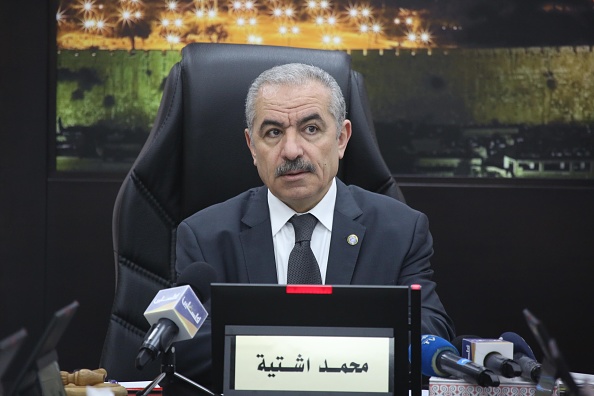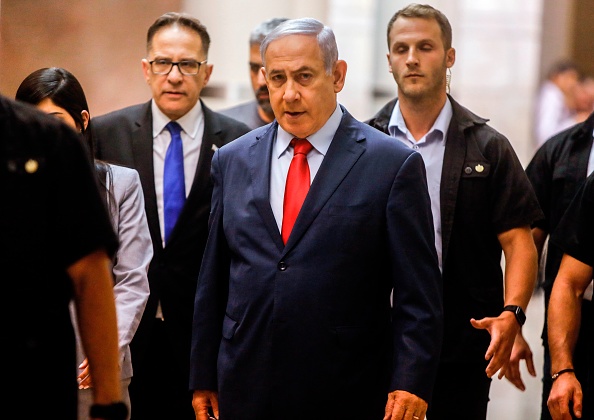Following a long period of anticipation and repeated delays, US officials have announced that they will hold an economic workshop in Bahrain in late June as the first step in the administration’s road map for peace between Israel and Palestine. The conference, which will take place in the capital Manama, is aimed at offering a vision for investment in the West Bank, Gaza, and neighbouring countries by focusing on four major components: infrastructure, industry, empowering and investing in people, and governance reforms to “develop the foundation of a prosperous future,” in the words of US President Donald Trump’s Middle East advisor and architect of the plan Jared Kushner. Trump’s son-in-law recently met with European, Moroccan, Jordanian and Israeli officials to discuss the secret plan and drum up support but while the details of the political component remain under wraps for now, the long-awaited plan has been faced with a wall of scepticism.
A PALESTINIAN INVESTMENT CONFERENCE WITHOUT PALESTINIANS
The idea for the “Palestinian investment conference” ran into trouble almost immediately after it was announced, with Palestinian business leaders and officials refusing to participate and calling on other Arab governments to do the same. Palestinian officials, who see the administration as tilted in Israel’s favour, have refused to talk to the United States since it recognised Jerusalem as Israel’s capital in 2017 and relocated the US embassy from Tel Aviv - ending decades of US policy that the final status of the city would be agreed through peace talks.
The idea of promoting economic peace as a forerunner to addressing thorny political issues has a long history, dating back to the Reagan administration. But since Israeli Prime Minister Benjamin Netanyahu stated his willingness to negotiate a two-state solution but called on Arab countries to cooperate with the Palestinians and Israel on achieving “economic peace” in the meantime, the term took a negative cast. Thus, sequencing the peace deal by putting potential investments ahead of political change, did not sit well with Palestinian leaders.
Soon after the announcement of the summit, the Palestinian Prime Minister Mohammed Shtayyeh immediately cast a cloud of doubt during a Palestinian cabinet meeting. “Any solution to the conflict in Palestine must be political… and based on ending the occupation,” he said. “The current financial crisis is a result of a financial war waged against us and we will not succumb to blackmailing and extortion and will not trade our national rights for money.”
Palestinian business organisations also declined the invitation. The groups, which say they represent 80% of Palestinian gross domestic product, say the Palestinian economy will never grow to its full potential without a comprehensive political solution.
“Economic peace — regardless of how it is repackaged — has been tried by successive U.S. administrations and has failed every time precisely because freedom and sovereignty for Palestinians was lacking,” the organisations said in a written statement. Ibrahim Barham, head of one of the largest West Bank technology companies, said he wouldn’t attend because “there’s no clue to any solution.”

US officials say the Palestinians are doing themselves a disservice by not attending the conference, and that they are marginalising their own role. Jason D. Greenblatt, the Trump administration’s special representative for negotiations, said in a Twitter post that a political component of the peace deal was coming. “We’ve been clear that the economic vision we present can’t exist without the political component, and the political component can’t succeed without the economic,” he wrote.
While the administration has failed to get buy-in from the Palestinian side, they have succeeded in engaging key Arab states, with Saudi Arabia and the UAE confirming their intention to attend the workshop while assuring the Palestinians they would not endorse a U.S. plan that fails to meet their demands. The UAE has also reiterated its “support for the establishment of a Palestinian state with East Jerusalem as its capital,” according to a statement by the Ministry of Foreign Affairs. Saudi Arabia has said that it will send Minister of Economy and Planning Mohammed Al Tuwaijri.
Saudi Arabia reiterated its support for the Palestinian cause during the Saudi-hosted Organisation of Islamic Cooperation (OIC) summit held in Jeddah last month. Saudi King Salman told OIC countries that the Arab nations would not compromise on the Palestinian issue. "The Palestine cause is the cornerstone of the works of the Organisation of Islamic Cooperation, and is the focus of our attention until the brotherly Palestinian people get their legitimate rights," Salman said. "We reaffirm our unequivocal rejection of any measures that would prejudice the historical and legal status of Quds (Jerusalem)," he added.
The leaders of the 56- Muslim-majority countries also said that they oppose any Middle East peace plan that favours Israel and undermines Palestinians and condemned countries that have made the “illegal and irresponsible decision” to recognise Jerusalem as the capital of Israel. "The Palestinian people have the right to achieve their inalienable national rights, including their right to self-determination and the establishment of an independent and sovereign Palestinian state," the OIC statement said.
The IMF, which has been operating in the West Bank and Gaza since 1995, has also confirmed that it and other global financial bodies would be present at the conference. The IMF and other lenders and development banks have long played a stabilising role in the Israeli-Palestinian conflict, providing loans, credit guarantees, and policy advice to the Western-backed Palestinian Authority (PA). The European Bank for Reconstruction and Development (EBRD) confirmed it would have “someone” representing it.
Israeli Deputy foreign minister Tzipi Hotovely said in a weekend radio interview “Israelis” would be there, but it was unclear if that was official delegates or private business representatives. Asked if she believed the event should be postponed given it would be shunned by the Palestinians, Hotovely told Tel Aviv station 102 FM: “No. There is no reason to ... Apart from them, everyone’s okay. Everyone’s in favour.”
UNPRECEDENTED INSTABILITY IN ISRAEL
While Israel has confirmed its intention to attend, any delegation will not be representing a stable, established government empowered to make deals. Following Prime Minister Benjamin Netanyahu failure to form a government in the wake of his April 9 election victory, Israeli politics has been thrown into disarray. Netanyahu was forced to call a new election scheduled for September 17, an unprecedented development even for the country’s infamously volatile political system. A senior US administration official said that the plan would be presented when the “timing is right” but that timing has grown increasingly problematic and the peace plan could be losing steam.
The Trump administration had previously decided against issuing the plan in the middle of an Israeli election campaign a few months ago and so the same logic may pertain as Netanyahu enters a new election campaign. Thus, the Trump administration will likely find itself stymied in any significant attempt to move forward with the political component of the peace effort until November which is the earliest there could be a government in place. In the interim, Netanyahu will likely be pulled further to the right by distancing himself from any potential concessions to the Palestinians to retain hold on power, amounting to a setback for Trump’s peace team. Furthermore, by November Trump will be in campaign mode as he enters the start of the primary season, a less than ideal time to put forth a peace plan.

As Israel has never held two consecutive elections so quickly, it is difficult to predict how the do-over will affect turnout but there is no guarantee that Netanyahu’s Trump friendly government will stay in power. And if he does emerge with a sixth election victory in September, he won’t be out of trouble: Just weeks after the vote, he is set to face a legal hearing with state prosecutors and then a final decision from Israel’s attorney general on whether to go ahead with a plan to indict the prime minister on corruption charges.
In the wake of Netanyahu’s setback, the chief Palestinian negotiator, Saeb Erekat, cracked that the “deal of the century,” as people have taken to calling the Trump plan, had become the “deal of the next century.”
Former U.S. ambassador to Israel between 2011 and 2017, told the Jewish Insider that "the Trump peace plan is on ice - maybe permanently”.
But Jonathan Schanzer, vice president at the Foundation for Defense of Democracies, who has worked closely with the Trump administration on Middle East policies and told the Washington Examiner that while the new developments in Israel complicate the process, a deal isn't dead-on-arrival. "It's not impossible, but extremely difficult because any agreement that Netanyahu might agree to would lack the support for the Israeli electorate," he said.
Some observers have also commented that the collapse of the Israeli coalition talks may prove to a blessing in disguise as a delay in the deal’s release could buy the administration time to overcome some of the flaws that threaten to produce an ineffective plan while improving its diplomatic position as well as the situation on the ground. This could help the peace team to avoid landing the plan in the middle of an already volatile landscape as the situation on the ground itself is becoming increasingly unstable. Progress is being made toward an Egyptian-brokered truce in Gaza between Hamas and Israel after numerous rounds of fighting and a mounting death toll. Yet there are likely to be more flare-ups this summer. In the meantime, the humanitarian situation there remains on the precipice of collapse, demanding an immediate international response.
FROM “DEAL OF THE CENTURY” TO “WE’LL SEE WHAT HAPPENS”
In a raw assessment of the peace plan published by The Washington Post, Secretary of State Mike Pompeo described it as “unexecutable”, saying that it “may be rejected” and that critics would call it “not particularly original”. Pompeo, who said he believes he has seen “all the details of what we are going to roll out,” made his comments during an off-the-record meeting of the Conference of Presidents of Major American Jewish Organizations. According to the Post, Pompeo demonstrated in the audio recording obtained by CNN a drastic change in tone when talking about the deal admitting that it “has taken us longer to roll out our plan than I had originally thought it might - to put it lightly,” and that there are “no guarantees that we’re the ones that unlock it.” In the most candid remarks yet from the Trump administration on the challenges facing the plan, Pompeo also said he could understand why many see the deal as one “only the Israelis could love” and said the US was also planning for failure, including in a scenario where Israel annexes parts of the West Bank - a move that many in the international community see as being the end of the possibility of a two-state solution and could create further unrest on the ground.
Reacting to Pompeo’s downbeat comments, Trump, who previously called the plan the “deal of the century” conceded that “he may be right.” But he did not completely dismiss the plan, adding: “when Mike says that, I understand when he says that, because most people think it can’t be done. I think it probably can. But as I say often, we’ll see what happens.
Jared Kushner defended his plan in an interview with Axios website but sparked controversy by questioning whether the Palestinians were capable of governing themselves and suggesting it didn’t matter if the Palestinians trusted him. Asked whether the Palestinians were capable of governing themselves without Israeli interference, Mr Kushner said: “That’s a very good question. That’s one that we’ll have to see. The hope is that they, over time, will become capable of governing.” He also said “I’m not here to be trusted” when asked why the Palestinian leadership should trust him and other senior members of the peace team, who have longstanding links to the Israeli settlement movement.







